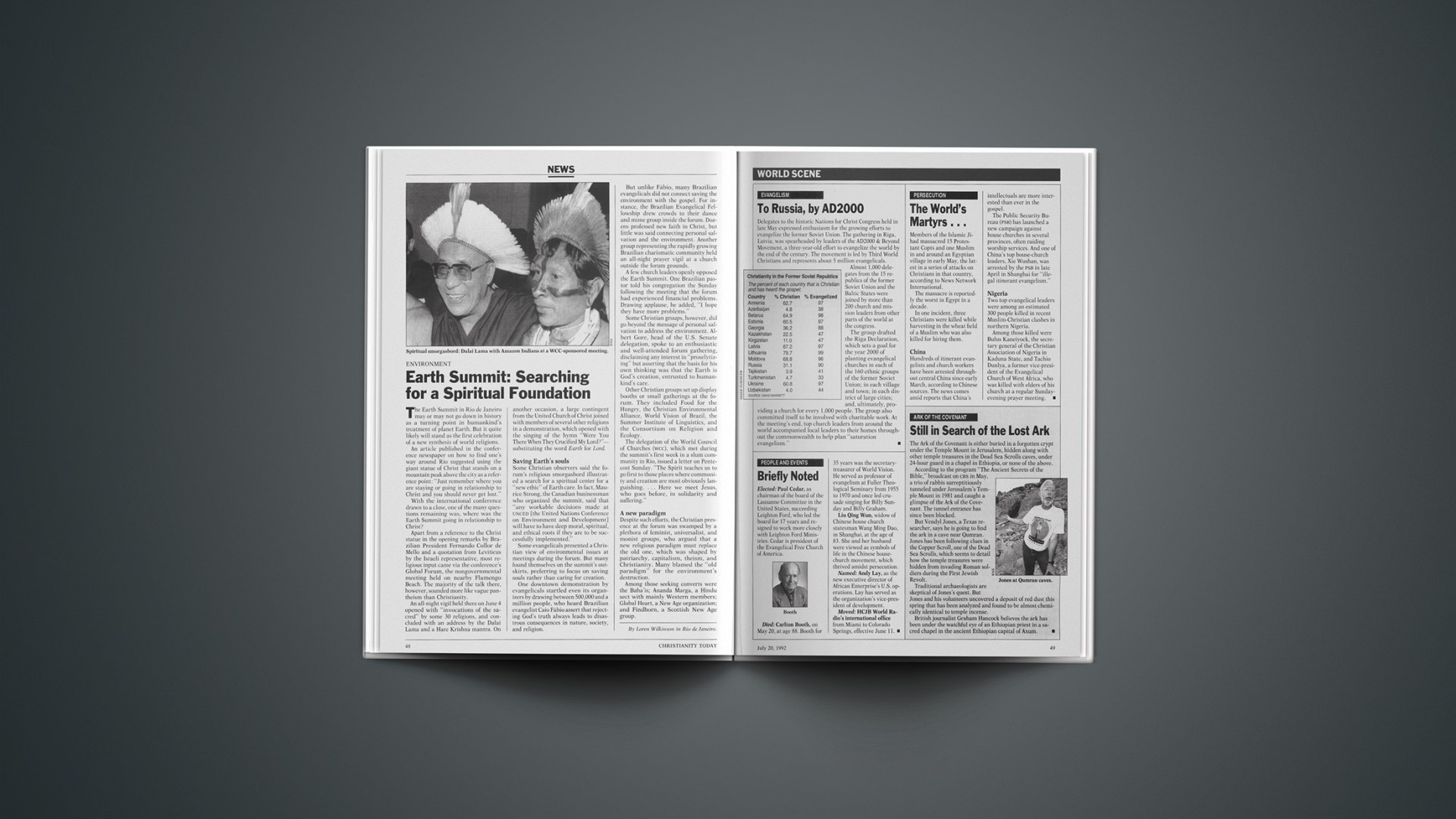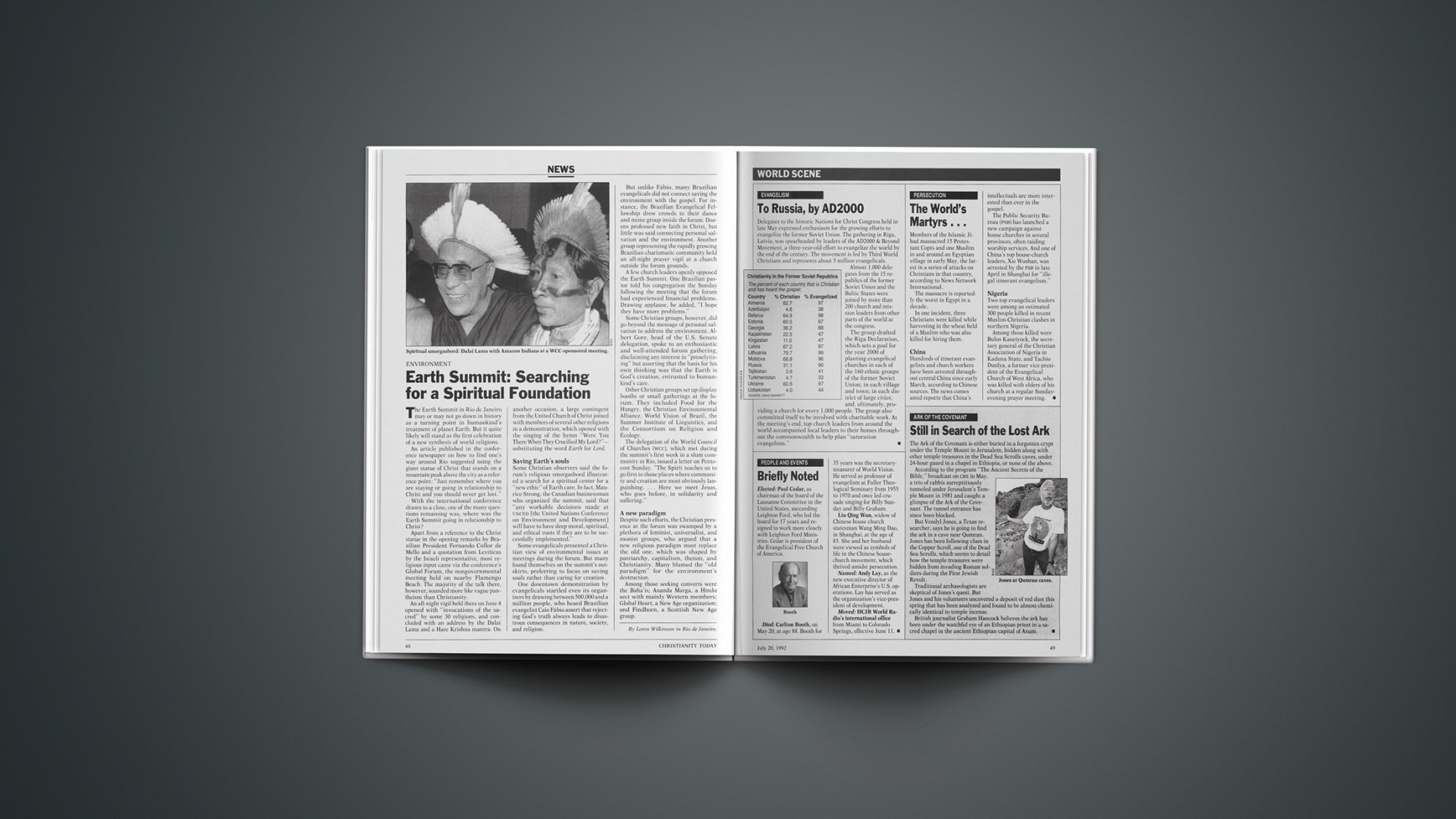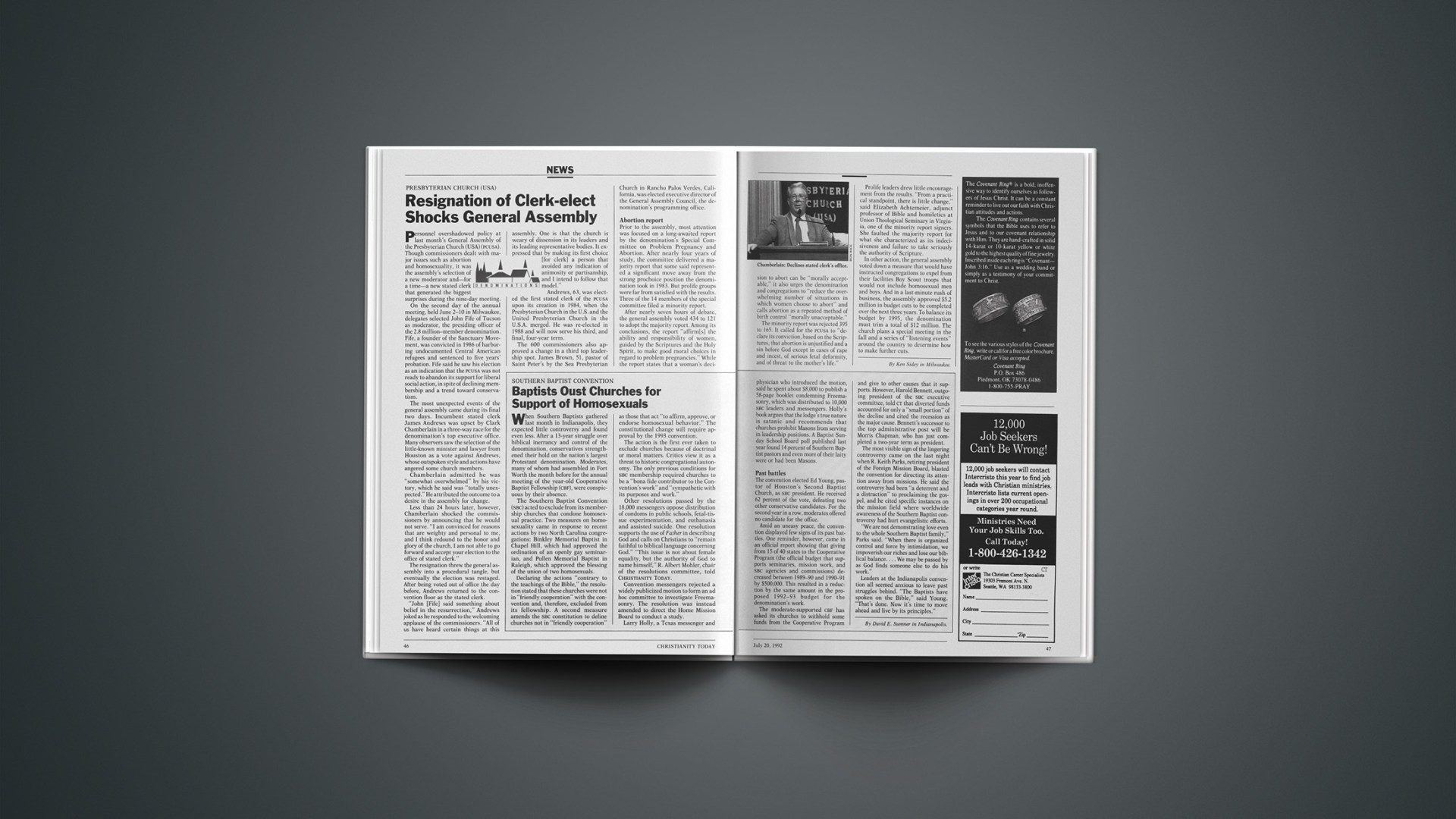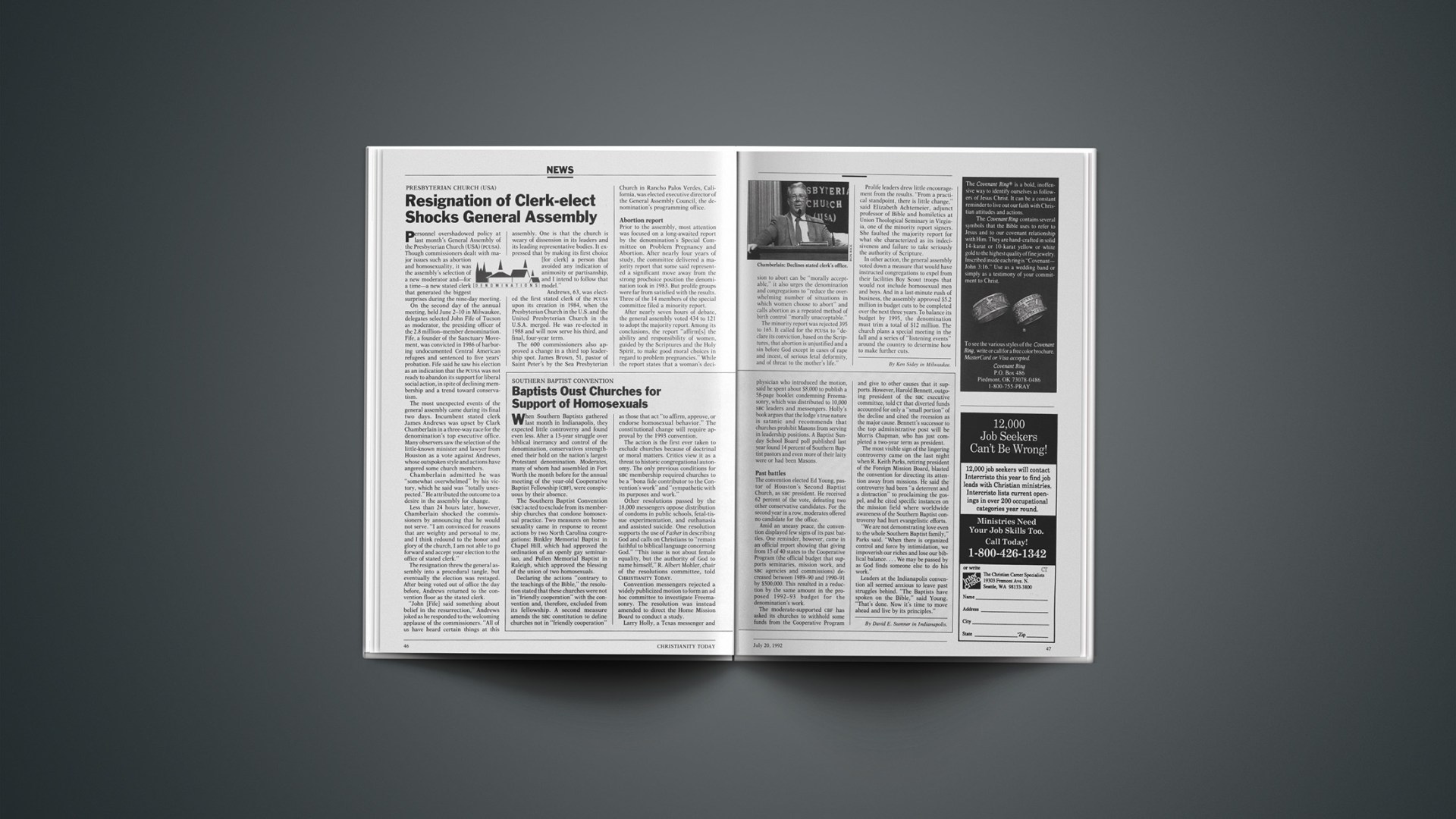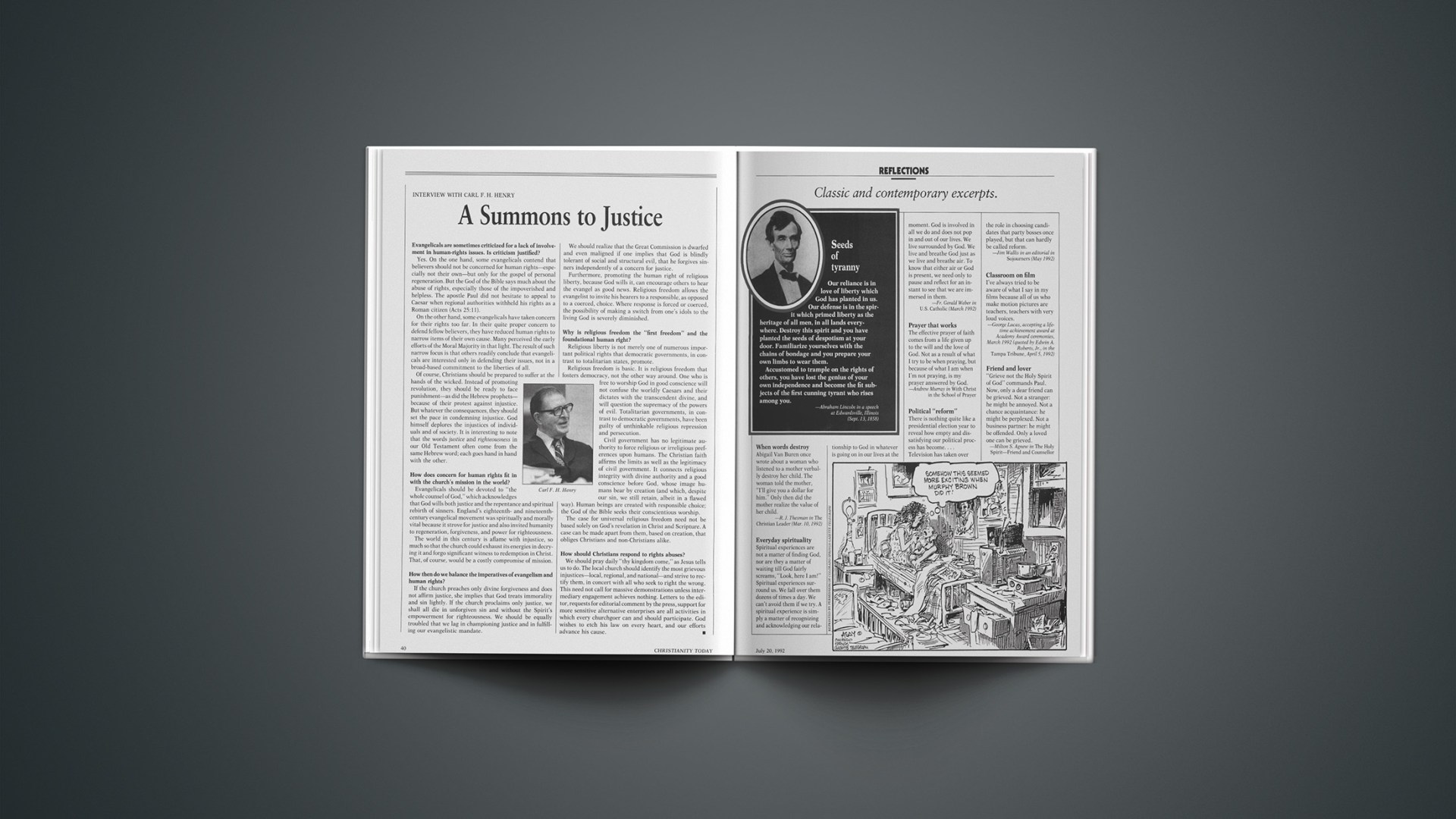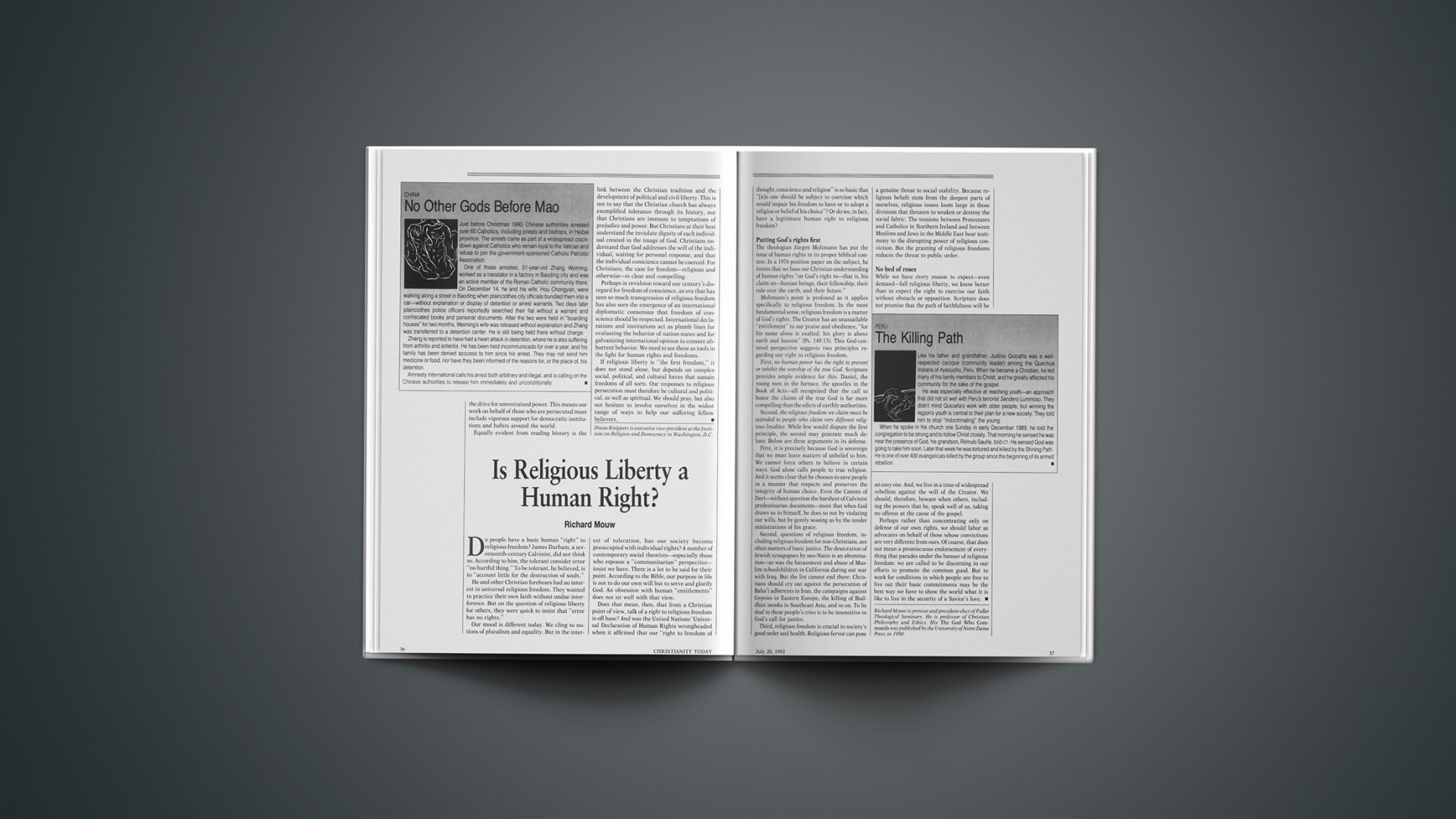Evangelism
To Russia, By Ad2000
Delegates to the historic Nations for Christ Congress held in late May expressed enthusiasm for the growing efforts to evangelize the former Soviet Union. The gathering in Riga, Latvia, was spearheaded by leaders of the AD2000 & Beyond Movement, a three-year-old effort to evangelize the world by the end of the century. The movement is led by Third World Christians and represents about 5 million evangelicals.
Almost 1,000 delegates from the 15 republics of the former Soviet Union and the Baltic States were joined by more than 200 church and mission leaders from other parts of the world at the congress.
The group drafted the Riga Declaration, which sets a goal for the year 2000 of planting evangelical churches in each of the 160 ethnic groups of the former Soviet Union; in each village and town; in each district of large cities; and, ultimately, providing a church for every 1,000 people. The group also committed itself to be involved with charitable work. At the meeting’s end, top church leaders from around the world accompanied local leaders to their homes throughout the commonwealth to help plan “saturation evangelism.”
People And Events
Briefly Noted
Elected: Paul Cedar, as chairman of the board of the Lausanne Committee in the United States, succeeding Leighton Ford, who led the board for 17 years and resigned to work more closely with Leighton Ford Ministries. Cedar is president of the Evangelical Free Church of America.
Died: Carlton Booth, on May 20, at age 88. Booth for 35 years was the secretary-treasurer of World Vision. He served as professor of evangelism at Fuller Theological Seminary from 1955 to 1970 and once led crusade singing for Billy Sunday and Billy Graham.
Liu Qing Wun, widow of Chinese house church statesman Wang Ming Dao, in Shanghai, at the age of 83. She and her husband were viewed as symbols of life in the Chinese house-church movement, which thrived amidst persecution.
Named: Andy Lay, as the new executive director of African Enterprise’s U.S. operations. Lay has served as the organization’s vice-president of development.
Moved: HCJB World Radio’s international office from Miami to Colorado Springs, effective June 11.
Persecution
The World’S Martyrs …
Members of the Islamic Jihad massacred 15 Protestant Copts and one Muslim in and around an Egyptian village in early May, the latest in a series of attacks on Christians in that country, according to News Network International.
The massacre is reportedly the worst in Egypt in a decade.
In one incident, three Christians were killed while harvesting in the wheat field of a Muslim who was also killed for hiring them.
China
Hundreds of itinerant evangelists and church workers have been arrested throughout central China since early March, according to Chinese sources. The news comes amid reports that China’s intellectuals are more interested than ever in the gospel.
The Public Security Bureau (PSB) has launched a new campaign against house churches in several provinces, often raiding worship services. And one of China’s top house-church leaders, Xie Wushan, was arrested by the PSB in late April in Shanghai for “illegal itinerant evangelism.”
Nigeria
Two top evangelical leaders were among an estimated 300 people killed in recent Muslim-Christian clashes in northern Nigeria.
Among those killed were Bulus Kaneiyock, the secretary general of the Christian Association of Nigeria in Kaduna State, and Tachio Dunlya, a former vice-president of the Evangelical Church of West Africa, who was killed with elders of his church at a regular Sunday-evening prayer meeting.
Ark Of The Covenant
Still In Search Of The Lost Ark
The Ark of the Covenant is either buried in a forgotten crypt under the Temple Mount in Jerusalem, hidden along with other temple treasures in the Dead Sea Scrolls caves, under 24-hour guard in a chapel in Ethiopia, or none of the above.
According to the program “The Ancient Secrets of the Bible,” broadcast on CBS in May, a trio of rabbis surreptitiously tunneled under Jerusalem’s Temple Mount in 1981 and caught a glimpse of the Ark of the Covenant. The tunnel entrance has since been blocked.
But Vendyl Jones, a Texas researcher, says he is going to find the ark in a cave near Qumran.
Jones has been following clues in the Copper Scroll, one of the Dead Sea Scrolls, which seems to detail how the temple treasures were hidden from invading Roman soldiers during the First Jewish Revolt.
Traditional archaeologists are skeptical of Jones’s quest. But Jones and his volunteers uncovered a deposit of red dust this spring that has been analyzed and found to be almost chemically identical to temple incense.
British journalist Graham Hancock believes the ark has been under the watchful eye of an Ethiopian priest in a sacred chapel in the ancient Ethiopian capital of Axum.

